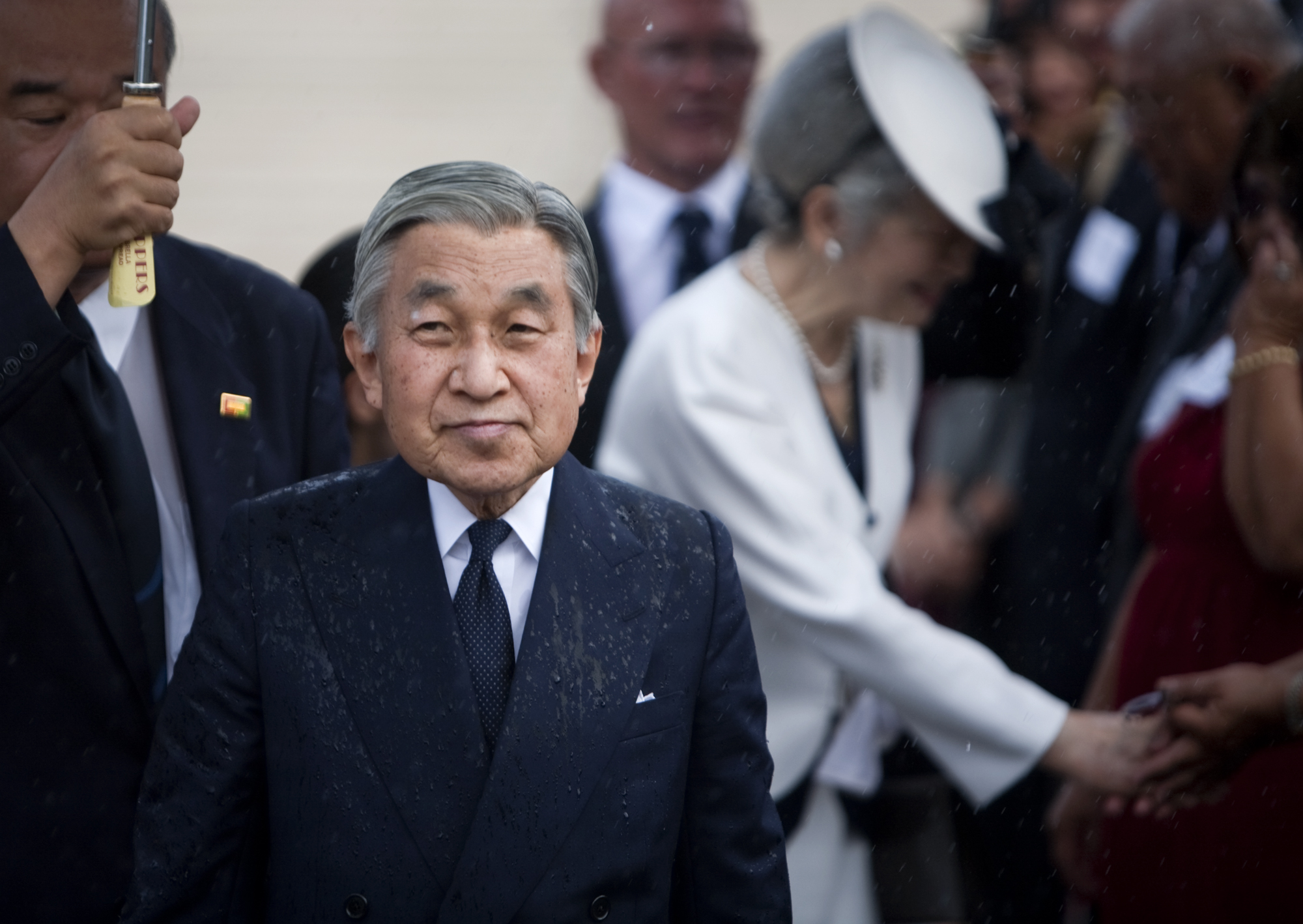
Is Central Europe becoming a main conduit for Taiwan’s diplomacy on the continent?
On Tuesday, the EU’s foreign policy chief, Josep Borrell, gave his most extensive speech on Taiwan to date. China’s threats to the self-ruling island “may have a direct impact on European security” because Taipei’s microchips are “indispensable” to Europe’s digital development, he said. A few days earlier, during her address to the European Parliament, European Commission Vice-President Margrethe Vestager said: “We Europeans, we have an interest in preserving the status quo in the Taiwan Strait….and we will continue voicing our concerns in our contact with China and publicly, and step up coordination with like-minded partners as the G7.” She added: “This display of force may have a direct impact on European security and prosperity.”
The European People’s Party Group, the largest political group in the European Parliament, this month called on the bloc to start negotiations for a Bilateral Investment Agreement with Taiwan before the end of 2021. The EU’s recently released Indo-Pacific Strategy paper states: “The EU will also pursue its deep trade and investment relationships with partners with whom it does not have trade and investment agreements, such as Taiwan.” The Indo-Pacific paper – which only mentions Taiwan on five occasions, compared to 13 mentions for Indonesia, for instance – also notes: “The display of force and increasing tensions in regional hotspots such as in the South and the East China Sea and in the Taiwan Strait may have a direct impact on European security and prosperity.
While the rest of the EU is now keen to talk to (and about) Taiwan, for years much of Taiwanese engagement on the continent was with the smaller states in Central and Eastern Europe. This week sees a large Taiwanese political and business delegation arrive in Slovakia, before heading to the Czech Republic and Lithuania, a Baltic state on the foreground of an anti-Beijing and pro-Taiwan agenda. “CEIAS Considers” spoke to regional experts on what Central European cooperation with Taiwan means, both domestically and regionally, and what is the future of these relations.
 Kristina Kironska
Kristina Kironska
Advocacy Director at CEIAS, and Senior Researcher at Palacký University Olomouc
Compared to neighboring countries, Slovakia’s interaction with Taiwan has been picking up very slowly. Since the exchange of representative offices in 2003, several agreements have been concluded, such as the avoidance of double taxation (2011), mutual recognition of driving licenses (2012), and most recently judicial cooperation in criminal matters (2021). Very often these agreements and consultations have been very secretive.
However, Slovakia was the first country in the Schengen area to support the introduction of visa-free travel with Taiwan (which since 2011 covers the whole EU). More recently, during the pandemic, Slovakia was one of the first EU countries to include Taiwan in the list of countries considered safe (no quarantine required). In 2020, Taiwan donated 700,000 medical masks to Slovakia. Slovakia returned the favor in 2021 by donating the first 10,000 vaccines and later another 160,000 vaccines. Slovakia was the second European country after Lithuania to provide vaccines at a time when there was a shortage of them in Taiwan.
Taiwan plays an important role in FDI – it is the third-largest East Asian investor in Slovakia with a total volume of €450 million and 2,500 jobs. A memorandum on economic cooperation was signed in 2019 to facilitate cooperation – trade development, investment, technology, innovation, e-governance, and tourism. As such, the two countries are ready for further development of their relations. There are opportunities for Slovakia in exporting cars and food products, investing in blockchain technologies, and renewable (mainly wind) energy. For Taiwan, there is room for investment in the digitization of Slovakia, cooperation in the field of R&D, and production of electric vehicles as Slovakia has relevant experience with the automotive industry and Taiwanese Foxconn recently announced entry into electromobility (Foxconn wants to develop and manufacture new electronic systems for electric vehicles, including in the Slovak plant in Nitra, and by 2027, the company wants to dominate 10% of the market).
The next indicator of how relations will develop will be the outcome of the visit of a Taiwanese delegation coming to Slovakia this week. It will be followed by a visit by the Minister of Foreign Affairs Joseph Wu as part of his Europe tour.
 Richard Q. Turcsanyi
Richard Q. Turcsanyi
Program Director at CEIAS
V4 countries have often differed in their relations with China or Taiwan to Western European countries. In 1949, they were among those few countries who immediately recognized the Communist government in Beijing as the representative of China, while many Western European countries continued to recognize the government in Taipei for years or even decades.
After 1989, in turn, the anti-communist governments who got into power in V4 countries swiftly established contacts with Taiwanese authorities. Although they stayed short of formal diplomatic recognition, they challenged the general international practice of keeping relations with Taiwan non-controversial. Czech Republic, for instance, hosted the Taiwanese prime minister in 1995, being the most senior Taiwanese officially visiting Europe for decades. Czech President Havel also called at the UN for Taiwan to be admitted as a full member.
During the 2000s, many V4 officials attempted to develop “pragmatic” relations with China, and sometimes that led to a cool approach towards Taiwan. However, the mood in 2021 seems to definitely shift in another direction. The Czech elections have elevated politicians who are again critical of China and they will likely engage Taiwan significantly more in the future, as is also visible from the upcoming visit by the foreign minister Joseph Wu in Prague. Hungary is waiting for its own elections next year which might for the first time in a decade oust Viktor Orban. If that happens, that could result in a significant shift in Hungarian attitudes towards China and, in turn, Taiwan.
Finally, Poland and Slovakia will likely remain a bit more cautious than the Czech Republic and would try to preserve working relations with China, but would almost certainly engage Taiwan in various ways, as visible from recent donations of vaccines.
In short, the pendulum is now again moving to the era when the V4 countries would probably belong to those most ‘daring’ in developing relations with Taiwan.
 Kevin Curran
Kevin Curran
Project assistant at the Association for International Affairs in Prague
The issue of Taiwan’s relations with the V4 countries is a tough issue to tackle concisely, largely because relations across the group are by no means uniform. Further, elections, both recent and upcoming, add a degree of uncertainty on longer-term ties. Still, it is fair to say that ties are, by and large, getting tighter.
The best signal for good and improving relations between the V4 nations and Taiwan has clearly been the vaccine diplomacy, building upon Taiwan’s PPE donations in 2020. Each of the V4 nations, aside from consummate China-ally Hungary, sent large shipments of vaccines to Taiwan this summer and received effusive praise from Taiwanese officials in return.
However, public praise will not be the only thanks offered. Starting Tuesday, a 65-person-strong delegation from Taiwan will trek across Lithuania, Czechia, and Slovakia to promote bilateral trade and investment. As China has fallen out of favor in public discourse, at least in part, due to unkept economic promises, this is a prescient opportunity for Taipei to seize upon.
Even aside from the economic opportunities, there is already momentum in bettering relations in both Slovakia and Czechia. The 2018 trip of Czech Senate President Milos Vystrcil to Taiwan is the most prominent example, igniting a public discussion on both Taiwan and China’s heavy-handed tactics in threatening Vystrcil, cementing largely negative opinions on China. Now that Vystrcil’s party leader and public supporter of his trip to Taiwan, Petr Fiala, looks set to form the country’s next government, the positive trend seems destined to continue.
For Slovakia, relations with Taiwan have picked up notably since its Presidential and parliamentary elections in 2019-2020. Also, just last month, a delegation from Bratislava touched down in Taipei, preempting this week’s delegation due into Central Europe. In short, it would appear relations are very much on good terms, in line with the established trend in neighboring Czechia.
Of course, it is conspicuous that the Taiwanese delegation will avoid Poland despite its own sizable vaccine donation.
While Poland-Taiwan relations appeared on an uptrend in recent years, highlighted by the 2018 name change of its de facto embassy in Taipei, the Poles latest pivot appears to be toward Beijing. In line with his increasingly China-friendly statements of late, Polish FM Zbigniew Rau vocally asserted Poland’s adherence to the One China Policy only days after his nation’s vaccine donation to Taiwan. The delegation’s detour around Poland could be tied to its apparently ambivalent policy on Taiwan.
Hungary is not as noncommittal. While the nation enjoys hosting Taiwanese firms like Foxconn, its government is perhaps Beijing’s staunchest ally in Europe, steering its policy strongly. That said, an upcoming election and a formidable challenger to Orban could quickly reorient this relationship. Peter Marki-Zay, recently victorious in the nation’s primaries, is eager to criticize the Fidesz frontman’s closeness to China as out of step with European values. If he were to emerge victorious in 2022, his government is likely to promote these values by bettering ties with Taiwan rather than keeping the country’s current tack on China. If that does come to fruition, a rosier forecast for relations between Taiwan and the bloc generally can be offered with more conviction.
 Justyna Szczudlik
Justyna Szczudlik
Deputy Head of Research, Head of Asia-Pacific Program and China Analyst with the Polish Institute of International Affairs
In recent months one may observe the internationalization of Taiwan’s issue. The situation in Europe is similar, in a form of a new positive hype around the island. There are two main driving forces for this trend. The first one is China: its recent very assertive behavior in a form of wolf-warrior diplomacy as well as tightening Xi Jinping’s grip on domestic issues. The second is Taiwan: its economic performance is critically important for the global economy, especially noticeable during the pandemic (e.g. role of semiconductors – manufactured in Taiwan – in global value-chains, raising awareness of a need to decrease economic dependence on China, etc.), and foreign activities (e.g. health diplomacy) with a focus on island’s separateness from China, highlighting well-functioning democracy with a progressive society that defines itself as Taiwanese people.
This positive perception of Taiwan is epitomized in friendly discourse about the island and concrete initiatives to enhance ties with Taipei with the best example of a standalone European Parliament report on Taiwan.
This Taiwan-friendly hype is not only noticeable at the EU level, but also at the member states tier with Central Europe playing a vanguard role in enhancing ties with Taipei. There are several reasons for this trend such as similarities or shared experiences that make Central Europe and Taiwan closer together. Among them is the experience of living under the shadow of a big and authoritarian neighbor (in the case of Central Europe – the Soviet Union); Central Europe and Taiwan experience of transformation from an authoritarian system to democracy in the late 1980s and early 1990s; and all parties’ appreciation of cooperation with the US as a security guarantor. What is more, the island with its economy based on high technology and innovation and home to global IT companies is an attractive economic and scientific partner for the region.
Poland is among Central European countries that have been strengthening ties with Taiwan for several years. However, this process is not as spectacular as in the case of Czechia or Lithuania. Poland’s mindset could be described as enhancing its ties with Taiwan and simultaneously maintaining cooperation with the PRC. This means a rather non-confrontational approach towards China, which in practice means e.g. publicly underscoring the validity of the one-China policy to placate Beijing. In other words, Poland is meticulously balancing its ties with those two partners. And this approach is pretty consistent.
In 2016, after almost 20 years of talks, Poland and Taiwan signed an agreement on the avoidance of double taxation – it was a clear signal of Poland’s will of enhancing ties with the island. In 2018, Poland decided to change the name of the Polish representative office in Taiwan from the Warsaw Trade Office to the Polish Office in Taipei. While The Polish Investment & Trade Agency opened its Taipei-based office. What is more, information about Poland-Taiwan meetings or agreements (e.g. regular economic consultations – the latest held in September 2020) are publicly available on the Polish ministerial websites, which is a novelty as well.
In June 2019, Poland and Taiwan signed a bilateral agreement on legal cooperation in criminal matters, which subsequently became law in early 2021. The agreement covers mutual legal assistance, extradition, transfer of sentenced persons, and the exchange of information. This is the first such agreement that Taiwan has signed with the European country. During the pandemic, Poland also helped Taiwanese students get back home, co-organizing direct flights from Warsaw to Taipei by the LOT Polish Airlines. In September Poland handed over 400,000 AstraZeneca vaccine doses to Taiwan. There is also growing trade between the two sides as well as cooperation in science and education. This trend in bilateral ties seems to be continuing.
It seems that Central Europe’s closer cooperation with Taiwan might be seen as one of the reasons for the EU paying more attention to Taiwan, the argument for (or example of) rising US-EU convergence on China issue, and the EU’s incremental lean towards a perception of the PRC more as a “systemic rival” rather than “partner”. This also creates room for a debate about what “one-China policy” means and how to modify its boundaries.







